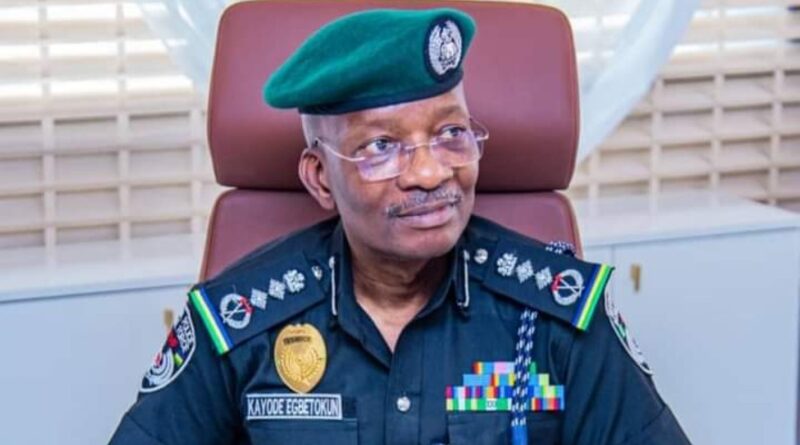Open Memo to the Inspector‑General of Police (IGP)
Abba Dukawa
With due respect to your esteemed office and in recognition of the noble role of the Nigeria Police Force in maintaining law, order, and the protection of citizens, I write on behalf of concerned citizens of the Federal Republic of Nigeria to humbly request a review and reduction of the number of police officers currently assigned to elected officials and political appointees across the country.
Sir, a report published this month (November 2025) by the European Union Agency for Asylum notes that the Nigeria Police Force has an estimated strength of 371,800 officers serving a population of about 236.7 million. The report reveals that more than 100,000 officers are presently deployed to protect politicians and other Very Important Persons, raising concerns that ordinary citizens are left under‑protected.
As you are aware, assigning police officers to private individuals and political office‑holders has long been a concern. In June 2023, shortly after taking office, you ordered the withdrawal of Police Mobile Force operatives from VIP duties, stating that the tactical unit would be reserved strictly for strategic national operations. Your office issued another directive in April 2025, ordering a nationwide withdrawal of mobile police officers attached to VIPs. Despite these directives, a significant portion of police manpower continues to be used for VIP protection.
In a video posted on the Nigeria Police Force’s official X account in September, you warned officers against intervening in civil disputes or serving private interests: quote “Let me reiterate without ambiguity: the Nigerian Police Force is not, and will never become, an enforcer for private interests. Officers have no business escorting parties for land recovery, disrupting legally‑existing occupations, or meddling in civil claims that lack a demonstrable criminal element. Every such incident erodes the neutrality of the Force and opens us up to disrepute.”
You added that disciplinary action will follow any officer who violates this directive, stating, “The line must be clear, and any officer who crosses it will face disciplinary consequences.”
Nevertheless, officers continue to escort parties for land recovery. A recent example is the clash involving the FCT Minister and Lieutenant AM Yerima in Gaduwa, reportedly stemming from a disagreement over documentation related to a property development. The incident escalated into a confrontation between the Minister, military personnel, armed officers of the Nigeria Police Force, and the DSS, all in the presence of unarmed civilians. But for divine intervention, the situation could have resulted in the loss of innocent lives through accidental discharge or direct gunfire.
Such occurrences contradict the fundamental purpose of policing—to protect the public interest rather than enforce personal authority or bolster the influence of any public official. Moreover, the over-deployment of police officers to political appointees exacerbates the shortage of security personnel available for community policing and public safety across the country. This leaves communities under‑police and vulnerable, while an excessive number of officers remain concentrated around a few individuals who already enjoy substantial state‑provided security.
Given the security challenges confronting Nigeria today, it is both logical and patriotic to ensure that police manpower is deployed where it is most needed—in communities, public spaces, patrol duties, and crime‑prevention initiatives—rather than being concentrated around a single officeholder. Reducing the number of officers attached to ministers and other officials will enhance discipline, restore public confidence in the Force, and reaffirm that the Nigeria Police serves the nation and its people, not individual political appointees.
It has further been observed that some officers attached to these officials have exhibited indiscipline and undue aggression, potentially stemming from misuse of authority or pressure from their principals. Such conduct tarnishes the reputation of the Nigeria Police Force and undermines the professionalism, impartiality, and integrity expected of its personnel.
Accordingly, I respectfully request that your office:
Review and reduce the number of police officers assigned to ministers, elected officials, appointees, and private individuals who can afford security services. Ensure that all political appointees receive only the standard, legally prescribed level of protection.
Other reassign surplus personnel to public‑security duties within the country and to areas where security presence is urgently needed. Investigate the conduct of the police officers involved in the Gaduwa incident to ensure accountability and prevent future occurrences.
Ensuring that all other directives issued from your office are enforced would greatly assist the police force in maintaining internal security. Taking these actions will demonstrate your leadership’s commitment to fairness, accountability, and the prioritization of citizens’ safety over political privilege.
I trust in your wisdom, patriotism, and sense of justice to act in the best interest of the Nigerian people and to protect the integrity of the Nigeria Police Force.
Dukawa write it from Kano
abbahydukawa@gmail.com




